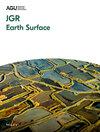Conditional Effects of Tides and Waves on Sediment Supply to Salt Marshes
Abstract
The survival of salt marshes, especially facing future sea-level rise, requires sediment supply. Sediment can be supplied to salt marshes via two routes: through marsh creeks and over marsh edges. However, the conditions of tides and waves that facilitate sediment import through these two routes remain unclear. To understand when and how sediment is imported into salt marshes, 2-month measurements were conducted to monitor tides, waves, and suspended sediment concentration (SSC) in Paulina Saltmarsh, a meso-macrotidal system. The results show that the marsh creek tends to import sediment during neap tides with waves. A tidal cycle with a small tidal range result in weaker flow in the marsh creek during ebb tides, reducing the export of sediment. Waves enhance sediment supply to the marsh creek by eroding mudflats. However, strong waves can directly resuspend sediment in marsh creeks during spring tides when the water level is above the marsh canopy, enhancing sediment export through creeks. Net sediment import over marsh edges requires the opposite tidal and wave conditions: spring tides with weak waves. Spring tides provide stronger hydrodynamics, facilitating sediment import over the marsh edge. Increased SSC during the ebb phase can occur with strong waves over the marsh edge, resulting in net sediment export. Therefore, the net import or export of sediment, through the creek and over the marsh edge, depends on the combination of tidal and wave conditions. These conditions can vary between estuaries and even individual marshes. Understanding these conditions is crucial for better management of salt marshes.

 求助内容:
求助内容: 应助结果提醒方式:
应助结果提醒方式:


